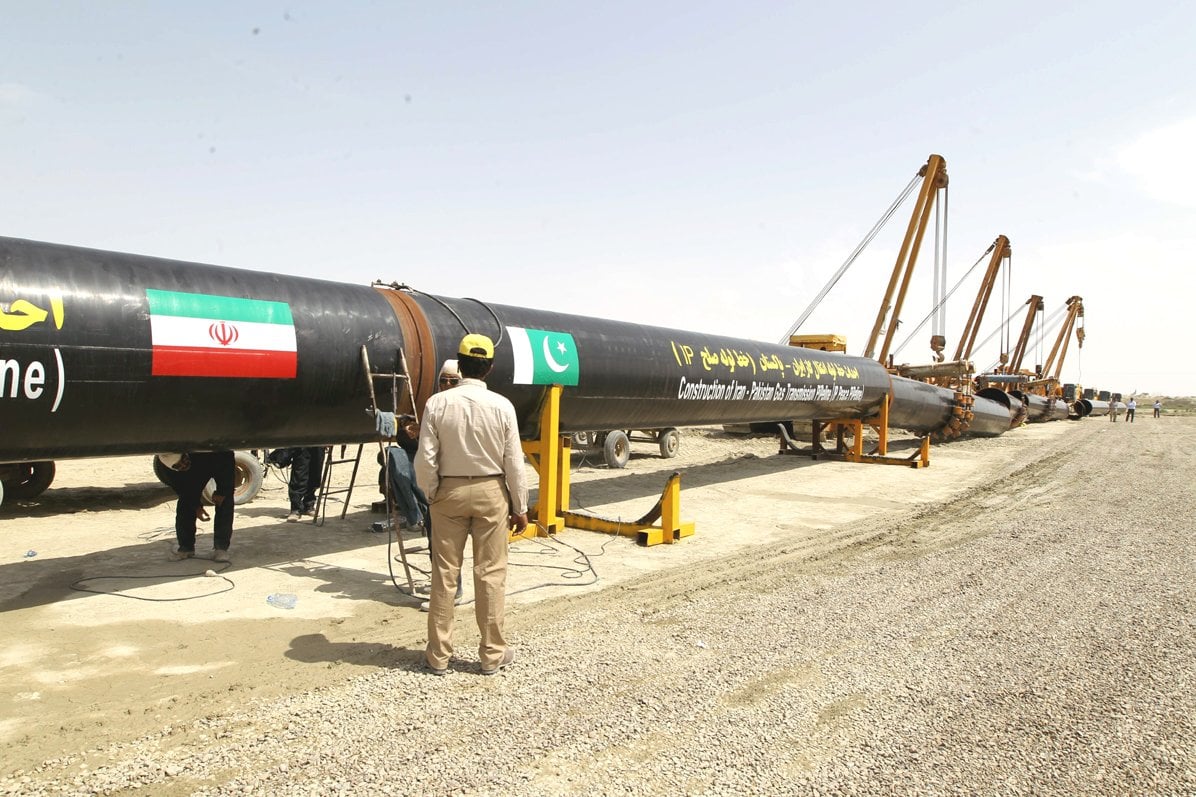ISLAMABAD: On Friday, the Cabinet Committee on Energy (CCoE) approved the start of construction on the 80-kilometer section of the Iran-Pakistan (IP) gas pipeline project that is located inside the nation.
 A press statement states that the committee has approved the project’s initiation, with the first phase extending from the Pakistan-Iran border to Gwadar, based on a recommendation by the Petroleum Division.
A press statement states that the committee has approved the project’s initiation, with the first phase extending from the Pakistan-Iran border to Gwadar, based on a recommendation by the Petroleum Division.
The project will be carried out by Inter State Gas Systems (Pvt) Ltd. and funded by the Gas Infrastructure Development Cess (GIDC). The consent of all pertinent divisions has been obtained to proceed, with the main goal being to fulfill Pakistan’s growing energy requirements and guarantee a steady supply of gas to its populace.
The project’s importance for boosting Pakistan’s energy security and boosting local business confidence through better gas supply was emphasized in the press release. It is expected that the project will boost economic activity in the province of Balochistan, advancing Pakistan’s economy as a whole.
The Express Tribune revealed earlier this week that Islamabad has pledged to finish the 80-kilometer IP gas pipeline project’s first phase inside its borders in order to avoid facing a possible $18 billion fine.
In an effort to avoid going to foreign tribunals, Iran has agreed to a 180-day extension that will expire in September 2024. Experts warn that if Iran takes legal action to defend its rights over the pipeline project, diplomatic relations between Pakistan and Iran may suffer.
Pakistan has made the decision to fulfill its commitment to Tehran by moving forward with the building of the IP gas pipeline within its borders, even in the face of US sanctions.
Good relations have always existed between Pakistan and Iran, especially when the Pakistan Peoples Party (PPP) was in power. Both nations signed the Gas Sales Purchase Agreement (GSPA) under Asif Ali Zardari’s presidency, obliging Pakistan to start building on the IP project. Pakistan used to import Iranian oil; however, the supply stopped in 2010 as a result of nonpayment by Pakistani refineries.
The payment was never a major problem between the two countries because they had arranged barter trade agreements and currency swaps, but experts think the US’s unwillingness to be flexible with regard to oil and gas commerce between Pakistan and Iran was the main cause of the breakdown.










































